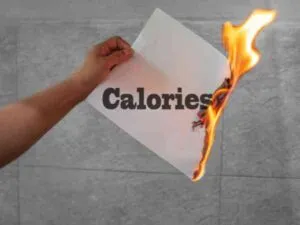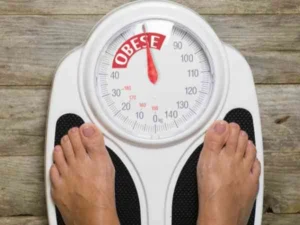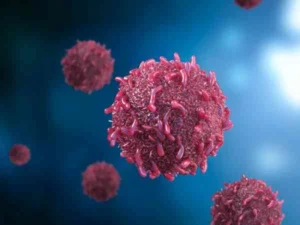Don’t Let Gas Problems Slow You Down! Try These Solutions Today
Gas problems are a group of medical conditions that affect thegastrointestinal tract. The GI tract is the system of organs in your body responsible for digestion. Also known as the digestive system, the GI tract processes food into amino acids, fats, and other substances that your cells need to function. When something goes wrong with this process, you have a gas problem. Many gas problems are common and easily treated, while others are serious and need medical intervention.
Gastric pain is a type of abdominal pain that occurs in the stomach area. It may be sharp, dull, stabbing, burning, cramping, or even worse. It is often accompanied by nausea and vomiting. Gastric pain can be caused by many things including ulcers, gallstones, food poisoning, appendicitis,diverticulitis, peptic ulcer disease, and cancer.

Gastritisis an inflammation of the stomach lining. There are many different types of gastritis including duodenitis, hypochlorhydria, reflux esophagitis, gastroesophageal reflux disease (GERD), peptic ulcer disease, and gastritis. Gastritis causes pain, burning, nausea, vomiting, and diarrhea and may cause weight loss.
Quick Takeaway:If you want to get rid of gas problems in humans, then you should try these methods.
- Eat small meals frequently.
- Drink plenty of water throughout the day.
- Avoid spicy, greasy, fatty, and fried foods.
According to theMayo Clinic, around 1-in-20 Americans suffer from some type of chronic digestive disease. That means that 20% of us have some sort of digestive issue. And according to theAmerican Gastroenterological Association, approximately 2 million Americans develop ulcers each year. According to the World Health Organization, approximately 1 billion people suffer from gastrointestinal disorders around the world.
So let’s just say that we’re looking at about 4 million people who have stomach ulcers. Now, if we assume that half of those people who get ulcers actually seek medical attention, then that’s still only 2 million people. So that means that roughly 1 out of 5 people who get ulcers don’t even know they have them. That’s pretty high!
What Are Some Common Gastric Problem Symptoms?

Gas problems are often overlooked until they become severe. Below we have mentioned the various symptoms that one may have while having gas issues:
- Nausea
- Vomiting
- Diarrhea
- Constipation
- Flatulence
- Heartburn
- Indigestion
- Acid Reflux
- Food Poisoning
- Stomach Ache
Why Do Gastric Issues Occur? Understanding the Cause of the Gas Problem!
Gas problems in humans are caused due to many reasons. One of them is improper digestion of food. If you have been suffering from gas problems, then it’s time to take action. You need to know what causes gas problems in humans and how to deal with them. Let us find out about the causes of gas problems in humans.
The following factors cause gas problems:
- Poor diet:People who eat foods that are not digestible often experience gas problems. These foods include dairy products, nuts, seeds, beans, grains, processed meats, fried foods, and carbonated beverages.
- Constipation:A lack of fiber in the diet can lead to a buildup of gases in the colon. Lack of exercise and insufficient water consumption can also contribute to constipation.
- Poor bowel movements:If the bowels do not move regularly, bacteria build up in the gut, resulting in gas.
- Excessive salivation:Saliva helps to break down food; however, if you have a dry mouth, you may find yourself experiencing gas problems.
Diagnosis of Gastric Issues: Get It Checked Before It’s Too Late!

The diagnosis of gastritis is done based on the symptoms and medical history. A physical examination is performed to check for any abnormalities in the stomach area. If necessary,endoscopy(a procedure where a thin tube called an endoscope is inserted into the body) is performed to look for any abnormalities in the esophagus, stomach, duodenum, and small intestine. Following are the other methods to diagnose gas problems
- Blood Tests
- Colonoscopy
- Biopsy
- Stool Sample
- X-Ray
How can you treat Gastric problems?
The first step in treating intestinal gas is identifying the causes of intestinal gas. There are many factors that contribute to intestinal gas production, including diet, lifestyle, and medical conditions.
The treatment of intestinal gas includes three steps:
- Identifying the causes of intestinal gas
- Preventing the formation of intestinal gas
- Treating intestinal gas
There are two types of intestinal gas treatments: medical and surgical. Medical treatments involve drugs, diet changes, or supplements that help reduce intestinal gas. Surgical treatments remove the cause of the problem and improve digestion.
1. Medical treatments
These include medications such as antacids,laxatives, probiotics, and antibiotics. Antacid medications neutralize stomach acid and prevent reflux. Laxative medications stimulate bowel movements to release gas. Probiotic medications promote good digestive bacteria in the gut. Antibiotics kill bad bacteria and may reduce gas production.
- Dietary changes – Changes in food intake, especially those involving fiber-rich foods, can reduce gas production. Fiber helps slow down digestion and reduces the amount of time spent in the intestine. Foods high in soluble fiber (such as applesauce) can help reduce gas production.
- Supplements – Supplemental vitamins and minerals may provide some relief. Supplements containing B vitamins, including folic acid, pantothenic acid, and biotin, have been shown to decrease gas production. Zinc and vitamin C can also help reduce gas production. Vitamin A increases mucus production and can help protect the lining of the colon.
2. Surgical treatments
This type of treatment involves removing the cause of the problem. Surgery removes parts of the body that produce excessive amounts of gas, including the appendix, gallbladder, pancreas, esophagus, stomach, and small intestine.
Removing these organs causes the body to create less gas because the body no longer produces certain enzymes that break down food. Doing so causes the body to use the mouth instead of the stomach to digest food. Removing the appendix creates less pressure in the stomach, preventing reflux.
Home Remedies to cure gas problems: Find Solutions Here!

- Ginger is known for its anti-inflammatory properties and is often used to treat stomach aches. To make ginger tea, add 1 teaspoon (about 2 grams) of dried ginger root to 1 cup (250 ml) of boiling water. Let steep for 10 minutes before straining and drinking. You may also use fresh ginger instead of dried.
- Cayenne pepperis a great remedy for indigestion and heartburn. Add some cayenne pepper to your food, or drink hot pepper sauce. If you have heartburn, try eating spicy foods or adding some cayenne pepper directly to your mouth.
- Cumin seedsare a good way to get rid of gas and bloating. Simply grind them into a fine powder and mix with warm water. Drink the mixture three times per day until symptoms subside.
- Garlic is a natural antibiotic and helps fight off bacteria and viruses.
- Aloe vera is a wonderful home remedy for diarrhea. Scoop out the aloe vera gel by cutting it. Mix the gel with equal parts honey and lemon juice. Apply the mixture for 20 minutes. Rinse with cool water.
- Apple cider vinegar is a great remedy for upset stomachs. Take half a tablespoon of apple cider vinegar mixed with a little bit of water. Lie down and hold your head over a bowl. Breathe deeply while holding your breath. Hold this position for 5 minutes.
- Onionshelp relieve congestion and clear sinuses. Put several slices of raw onion in a blender and blend until smooth. Strain the liquid through cheesecloth and apply it to your face. Allow it to dry and rinse. Repeat this procedure once or twice per week.
The Following Are Some Tips to Prevent Gas Problems
- Avoid smoking, alcohol, coffee, tea, and spicy foods.
- Eat smaller meals frequently.
- Drink plenty of water throughout the day.
- Reduce salt intake.
- Take a high-fiber diet rich in fruits and vegetables.
- Have enough sleep.
- Exercise regularly.
- Take adequate rest.
The conclusion,
You must be wondering Why most people are suffering from gas problems nowadays. Well, Firstly, Most of us eat way too much processed food, which means we’re eating too few unprocessed foods. Many of these foods have no fiber at all! Fiber is what helps keep the digestive tract working smoothly. When the gut isn’t doing its job properly, food moves through too quickly causing gas and bloating. This may seem harmless, but it’s actually not good for anyone.
Secondly, Water keeps everything running smoothly down below, including digestion. When you don’t drink enough water, the body doesn’t get rid of toxins efficiently. These toxins build up over time, eventually leading to constipation, diarrhea, and even stomach ulcers. Likewise, chemical addiction, stress, sugar, artificial sweeteners, and processed meat are some of the major reasons.
If you suspect you have a gas problem, then speak to your doctor for further treatment. You should also try eating less spicy and oily food if you want to reduce inflammation in the stomach. If these measures do not work, consult a gastroenterologist for effective treatments.





